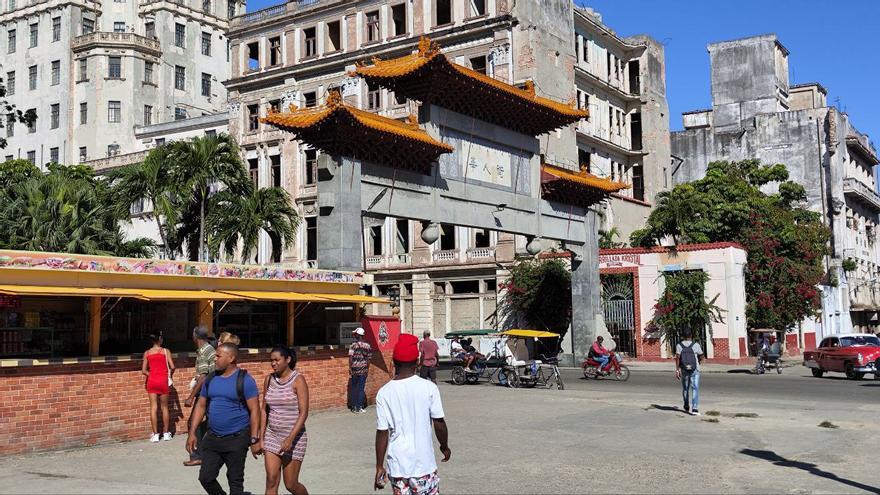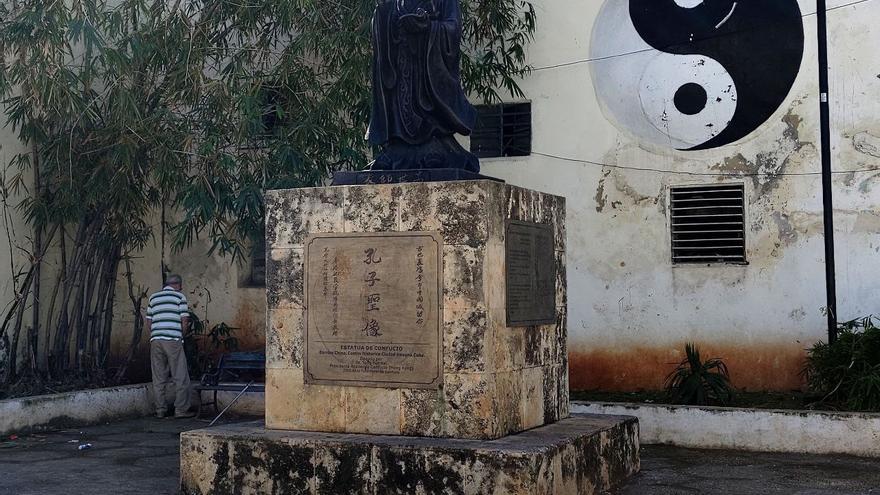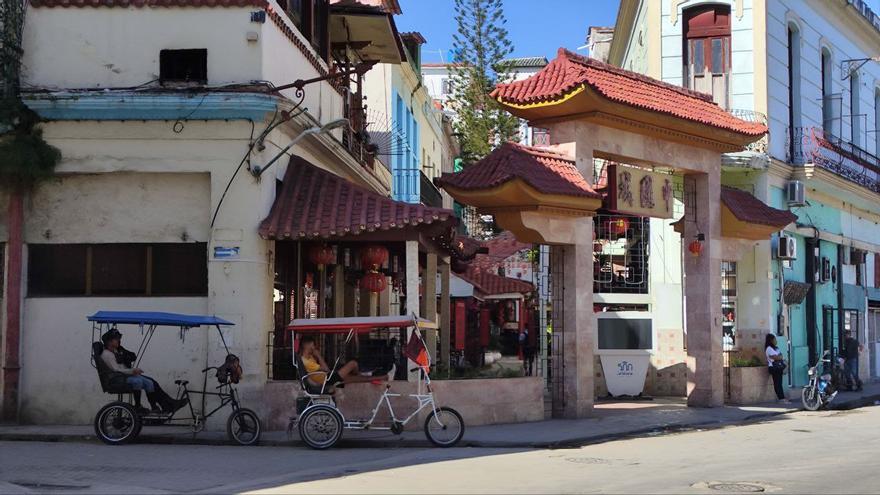
![]() 14ymedio, Juan Diego Rodríguez, Havana, 10 February 2024 — The Confucius statue in Havana’s Chinatown did not start off the Year of the Dragon on the right foot. Sitting this Saturday morning on benches in a park dedicated to the wise man were a beggar, a woman trying to get past the glitches in the phone company’s wifi network in order to connect to the “great beyond,” and a drunken man who – perhaps out of a certain sense of respect – peed on a random wall rather than than at the philosopher’s pedestal.
14ymedio, Juan Diego Rodríguez, Havana, 10 February 2024 — The Confucius statue in Havana’s Chinatown did not start off the Year of the Dragon on the right foot. Sitting this Saturday morning on benches in a park dedicated to the wise man were a beggar, a woman trying to get past the glitches in the phone company’s wifi network in order to connect to the “great beyond,” and a drunken man who – perhaps out of a certain sense of respect – peed on a random wall rather than than at the philosopher’s pedestal.
Once a place of legend and mystery, little of anything Chinese remains in what used to be one of the world’s most important Asian enclaves. In a neighborhood that used to be known as one of the best places to eat in Havana, everything now appears to be on the verge of collapse, marked for years — like the entire city — by faded walls and urban decay.
The restaurants are now empty. Their employees reluctantly try to lure in potential customers with little success. The general rule is an empty establishment with a buzzing fly and little to offer.

Havana’s Chinatown was the focus of some attention on the part of the city’s Office of the Historian,* which never managed to return it to its former glory. There are vestiges of often haphazard projects and restorations such as a peeling yin-yang emblem painted on a wall and traditional red lanterns hanging from some eaves.
Amid the ever-present reggaeton and foul smells, the voice of one salesman stands out: “We have to reinvent ourselves!” The Chinatown vendors agree. Instead of spring rolls and lacquered duck, there are dried vegetables, birdseed, and a place that doesn’t have what its neon sign advertises: “Delicious chicken!”
With Havana’s Chinatown showing few signs of life, much less of festivity, those hoping to find Year of the Dragon celebrations in Cuba will have to look elsewhere. At an event hosted this week by Cuban diplomats in China, the island’s big tobacco company, Habanos S.A., debuted its very expensive Montecristo Brillantes cigars. Packaged in a luxurious red case designed to appeal to Chinese millionaires, the cigar of the moment will not be smoked in Havana’s humble Chinatown.

*Translator’s note: A government agency headed by the late Eusebio Leal, whose most prominent project was the restoration of Central Havana, the city’s historic city center.
____________
COLLABORATE WITH OUR WORK: The 14ymedio team is committed to practicing serious journalism that reflects Cuba’s reality in all its depth. Thank you for joining us on this long journey. We invite you to continue supporting us by becoming a member of 14ymedio now. Together we can continue transforming journalism in Cuba.
